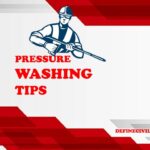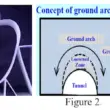The decision to go solar is an exciting step toward sustainability and energy independence. However, understanding and choosing the right solar optimizer can be a daunting task.
This in-depth guide will help you select a solar optimizer that perfectly suits your unique energy goals and environment.
That way, you can have peace of mind knowing that your solar system is optimized for maximum efficiency and longevity.
Read on then, to begin!

Type of Solar Panels
The first step in choosing the right solar optimizer is to determine the type of solar panels you have or plan to install. This is because not all optimizers are compatible with every type of panel. Monocrystalline, polycrystalline, and thin-film are the three main types of solar panels.
Monocrystalline Panels
Monocrystalline panels are made from a single crystal of silicon. They are known for their high efficiency. They are easily recognized by their uniform color and rounded edges. These panels are ideal for small and highly efficient installations.
Polycrystalline Panels
Polycrystalline panels, on the other hand, are made from multiple silicon fragments. They have slightly lower efficiency compared to monocrystalline panels. They usually have a speckled blue color and square edges. These panels are more suited for larger installations.
Thin-film Panels
Thin-film panels are the most cost-effective option. Yet, it also has the lowest efficiency. They are made by depositing thin layers of:
- silicon
- cadmium telluride
- copper indium gallium selenide
These panels come in different sizes and shapes. This makes them a popular choice for unconventional installations. Each type of panel may require a different type of solar optimizer. So, it’s important to determine the type of panels you have before moving forward in the selection process.
Like Us on Facebook!
Maximum Power Point Tracking (MPPT) Efficiency
The main function of a solar optimizer is to ensure that your solar panels are operating at their maximum power point (MPP). This is the optimal voltage and current at which the panels produce the most electricity. Therefore, it’s important to choose an optimizer with high MPPT efficiency.
Subscribe Us on YouTube!
MPPT efficiency can range from 95% to 99%. While this may seem like a small difference, it can make a significant impact on your solar system’s overall efficiency and energy production.
Moreover, some optimizers offer advanced MPPT features such as shade management and panel-level monitoring. Both of which can further increase your system’s efficiency. Consider these features when selecting an optimizer.
Voltage Compatibility
Another important factor to consider when choosing a solar optimizer is the voltage compatibility with your panels and inverter. Optimizers have a specific voltage range in which they can operate. So, it’s crucial to ensure that they are compatible with your panels and inverter.
If the voltage range of the optimizer is too low, it may not be able to handle the current produced by your panels. This can result in decreased efficiency and potential damage.
On the other hand, if the voltage range is too high, it may not be able to optimize your panels effectively.
Compatibility with Inverter
Your solar optimizer and inverter work together to convert the direct current (DC) produced by your panels into usable alternating current (AC). Therefore, it’s important to choose an optimizer that is compatible with your specific inverter.
AC is the standard form of electricity used in homes and businesses. Different inverters have different AC output requirements. Make sure to check the compatibility between your inverter and optimizer before making a final decision.
DC is also the form of electricity produced by your panels. So, it’s important to choose an optimizer that can handle the DC voltage and current output of your panels.
Some optimizers are designed for use with a specific brand or model of inverter. Others are more versatile. If you already have an inverter, make sure to choose an optimizer that is compatible with it.
If you’re purchasing a solar system for the first time, consider getting both the inverter and optimizer from the same manufacturer to ensure compatibility. Take note that optimizing your solar strategy is also about investing in compatible parts.
System Size and Scalability
The size of your solar system and its potential for future expansion should also be considered when choosing a solar optimizer. Some optimizers are designed to handle larger systems, while others may have limitations.
If you plan on expanding your solar system in the future, it’s important to choose an optimizer that can accommodate additional panels without compromising efficiency. This will save you time and money in the long run.
If you are concerned more about the scalability of your system, consider choosing a modular optimizer that allows for easy addition or replacement of individual optimizers. This way, you can easily adjust and optimize your system as needed.
Shading Issues
Shading from trees, buildings, or other obstructions can greatly affect the performance of your solar system. That’s why it’s essential to choose an optimizer that has built-in shade tolerance.
Some optimizers have advanced algorithms that can detect shading and adjust the panel output accordingly. Others may shut down entirely if even a small portion of the panel is shaded.
Consider the amount of shading your panels may experience. Make sure to choose an optimizer with appropriate shade tolerance.
Monitoring Capabilities
Many solar optimizers now come with monitoring capabilities that allow you to track your system’s performance and energy production in real time. This can help identify any issues or inefficiencies with your system.
When choosing an optimizer, consider the type of monitoring options available. Find out whether they align with your preferences or not. Some optimizers have simple online dashboards. Others may offer more advanced features such as mobile apps and data analytics.
Remote Monitoring and Troubleshooting
In addition to real-time monitoring, some optimizers also offer remote troubleshooting capabilities. This means that in case of any issues with your system, the optimizer can diagnose and fix them remotely. Thus, saving you time and money on service calls.
Consider whether this feature is important to you when selecting a solar optimizer. While it may not be a necessity for everyone, it can be a convenient and beneficial feature to have.
Warranty and Customer Support
When choosing a solar optimizer, make sure to consider the warranty and customer support offered by the manufacturer. A good warranty can provide peace of mind and ensure that your optimizer will be replaced or repaired in case of any malfunctions.
Additionally, check for reviews and ratings on the manufacturer’s customer support. This can help ensure that you can rely on them in case of any issues with your solar optimizer. If you don’t hold any warranty or have good customer support, you may face issues in the future.
Durability and Longevity
Consider the durability and longevity of the solar optimizer. It is important to choose an optimizer that can withstand harsh weather conditions and has a long lifespan.
Read reviews and ask for recommendations from friends or solar installers. That way, you can get an idea of which optimizers have a good track record in terms of durability and longevity.
The long-term performance of your solar system depends on the quality and reliability of its components, including the optimizer. This is why it’s crucial to choose an optimizer from a reputable manufacturer with a proven track record.
Ease of Installation
While this may not be the most critical factor, it’s still worth considering the ease of installation when choosing a solar optimizer. Some optimizers may require technical expertise and longer installation times. Others are more user-friendly and can be easily installed by homeowners.
Consider your comfort level with DIY projects or whether you will need to hire a solar panel provider for installation before making a decision. Additionally, check if the manufacturer offers any solar panel installation support or resources to make the process easier.
Price and Budget
Consider your budget when selecting a solar optimizer. While it’s important to choose a high-quality and reliable optimizer, it doesn’t have to break the bank.
Compare prices of different optimizers and consider the features that are most important to you before making a decision. It may also be helpful to consult with a solar installer for their recommendations on the best optimizers within your budget.
Scalability
Consider the scalability of the solar optimizer. As technology continues to advance, there may be new features or updates available for optimizers in the future.
Choosing an optimizer that allows for easy upgrades or additions can save you money and hassle in the long run. Look for optimizers with flexible designs and software that can accommodate future changes and advancements in the solar industry.
Compatibility with Monitoring Systems
If you plan on using a solar monitoring system to track your energy production and usage, make sure to choose an optimizer that is compatible with the system.
Some optimizers may have their monitoring capabilities. Others may integrate with third-party monitoring systems. Make sure to check compatibility before making a purchase.
Certifications and Standards
Make sure to choose a solar optimizer that meets all necessary certifications and standards. This can include safety certifications, such as UL or TUV. It also includes performance standards, such as IEC or IEEE.
Optimizers with these certifications and standards have gone through rigorous testing and are proven to meet certain requirements for safety and efficiency. Choosing an optimizer without these qualifications can put your system at risk and may not be eligible for certain incentives or rebates.
Communication Protocol
Consider the communication protocol used by the solar optimizer. This is important if you plan on integrating your solar system with other smart home devices or energy management systems.
Some optimizers may use Ethernet or Wi-Fi for communication. Others may have more advanced protocols such as Modbus or Zigbee. Make sure to choose an optimizer with a communication protocol that aligns with your existing systems or plans.
Installation Location
Consider the installation location when choosing a solar optimizer. Make sure to choose an optimizer that can withstand these conditions. This is if your panels will be installed in an area with extreme temperatures or weather conditions.
Additionally, check if the optimizer has any specific requirements for the placement or orientation of the panels. This information can help you plan and prepare for the installation process.
Brand Reputation
Consider the brand reputation when selecting a solar optimizer. Research the manufacturer and read reviews from other customers. That way, you can get an idea of their products’ quality and customer service.
Choosing a reputable brand can ensure that you are getting a high-quality and reliable product, along with excellent support in case of any issues or concerns. This can also be helpful if you plan on selling your home in the future, as a well-known brand may increase the value of your solar system.
Support and Service
Consider the support and service offered by the manufacturer. Solar optimizers are a crucial component of your solar system, so it’s important to choose a manufacturer that provides excellent customer service and technical support.
Check for reviews or ask for recommendations from other solar system owners to get an idea of the level of support provided by different manufacturers. This can help you make an informed decision and feel confident in your choice of solar optimizer.
Energy Efficiency
While all solar optimizers are designed to improve the efficiency of your solar panel system, some may have additional energy-saving features. These can include power optimization during low light conditions or power loss detection.
Consider if these features are important to you when selecting a solar optimizer and check for any available options that align with your energy goals and needs.
Invest In the Right Solar Optimizer
When it comes to choosing a solar optimizer, there are many factors to consider. It’s important to prioritize your needs and goals when evaluating different options. Choose an optimizer that will optimize the performance of your specific solar system.
Investing in the right solar optimizer can not only increase the efficiency of your solar system. It will also save you time and money in the long run.
Should you wish to discover other helpful reads, feel free to browse our blog section. We’ve got more!



















